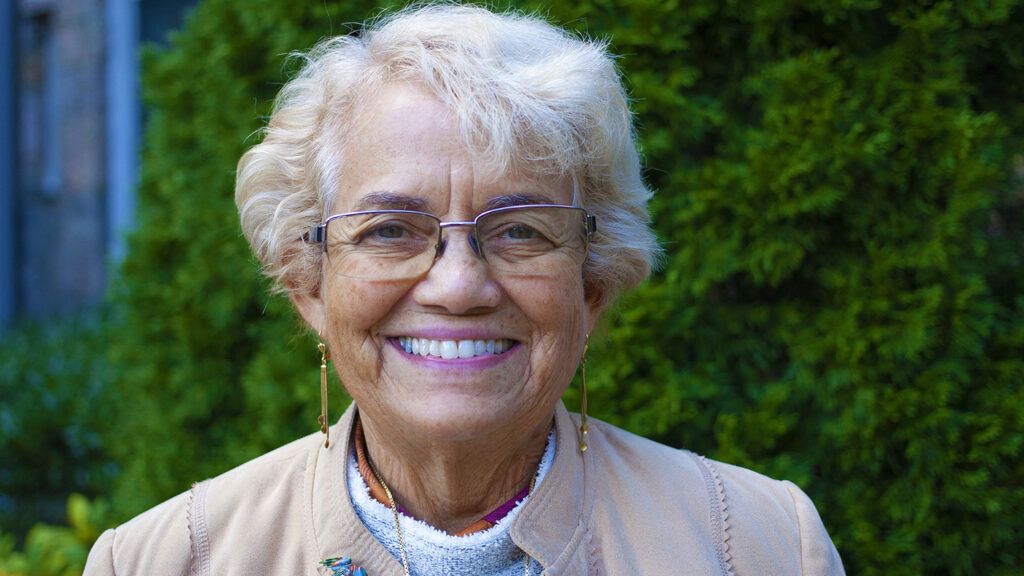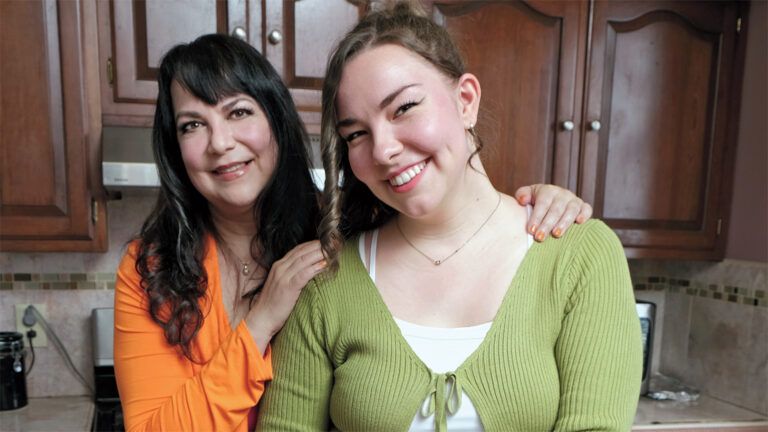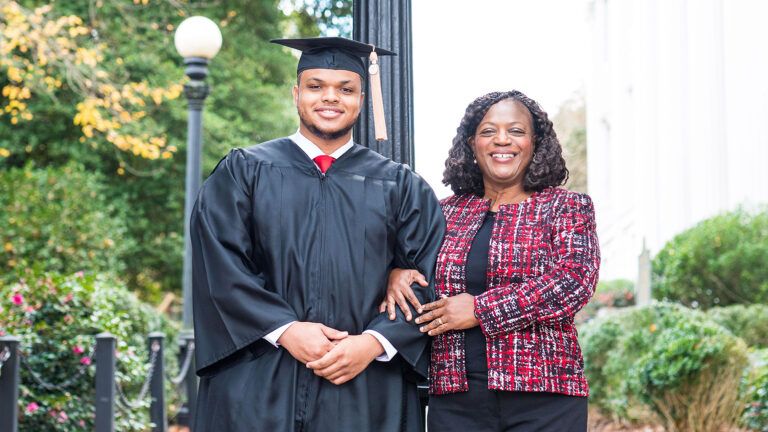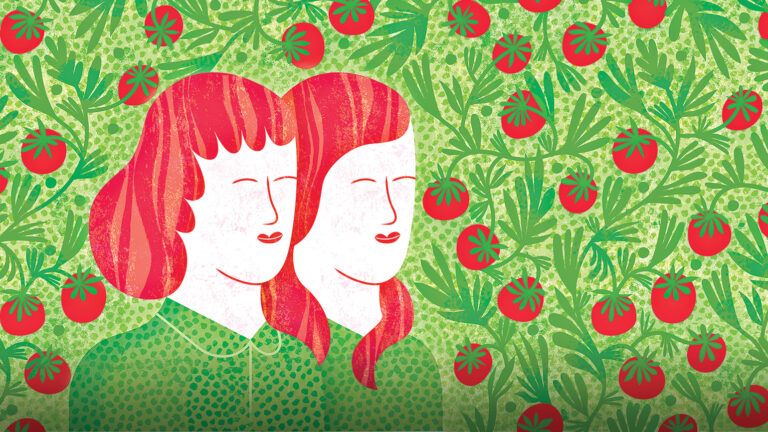I picked up the phone and called my son. I simply had to know. “Carlos,” I said, “I want you to be honest with me. Why don’t you believe in God? Could you ever believe?”
It was a very direct question. I am a very direct person. And for years I had been wondering and worrying about my son Carlos’s relationship with God.
Carlos is 51. He is a father. He and Bridget, the mother of his son, Santiago, live across the country from me in Miami. (They have been together for a long time, but they do not believe marriage is necessary. That’s a whole separate issue I have learned not to discuss with them.)
Carlos is not my only child, but his relationship with God has always been a special concern for me because at one time he wanted to become a priest. He was my most poetic, thoughtful child. If anyone were going to become a priest, it would be Carlos.
Then he went to Spain for his junior year abroad in college. He came home and announced, “Mom, I’m an atheist.”
What?
That was not possible. My relationship with God has been the cornerstone of my life since I was a child. My goal as a mother has been to instill the same faith in my own children.
I was born in the Dominican Republic and immigrated to the United States when I was eight years old. I attended Catholic schools. I married a Catholic man, and we had a large family.
I attend Mass every day. My relationship with Jesus is personal. I talk to him, and I follow his lead. It is because of Jesus that I have been able to overcome many challenges.
My husband and I divorced when I was 42. He was very traditional and expected me to be a traditional Catholic wife. I tried to meet his demands but couldn’t. I went back to school and renewed my teaching credential. I adopted several more children on my own. I felt God calling me to serve by becoming a mother to orphans. I was devastated when Carlos told me he had stopped believing in God.
How could that be? His father and I had tried our best to do everything right. We’d sent our kids to Catholic school and taken them to church every Sunday. I’d volunteered in the parish and helped launch catechism programs for Spanish speakers. My husband had edited the parish newsletter. Carlos had worked in the parish office on weekends.
His faith had seemed so sincere. He never complained about going to church. Rarely gave me trouble at home. He even wanted to enroll in seminary after high school, but the director told him to go to college first.
Look how that turned out!
Over the years, I had tried to coax Carlos back to church. But our relationship has been complicated. Carlos was in seventh grade when his father and I divorced. He took the breakup of our family hard. The custody arrangements were tangled, and we went long stretches without talking.
We have remained close since Carlos became an adult. For years he told me that he was not interested in going to church.
“Mom, I know your faith means a lot to you,” he would say. “I’m not against that. It’s just not for me. I’ve become too rational.”
Carlos earned his doctorate and worked in academia. That’s where he met Bridget. Their relationship wasn’t a traditional Catholic marriage, but I didn’t think it was my place to interfere.
Then Santiago was born. A change came over Carlos. He had been a gifted athlete in high school and college. His college water polo team won the state championship. Everything seemed to come easily to him.
Santiago had language and movement difficulties. He needed speech and physical therapy. Carlos decided to stop teaching at the University of Miami, where he and Bridget both worked. He devoted himself full-time to Santiago’s care.
“Mom, we’re going to have Santiago baptized,” Carlos told me one day. “We’d like you to be there.”
Really? Baptized?
“Are you becoming a believer again?” I asked.
“No,” he said. “I just…think it’s the right thing to do.”
I watched Carlos with his son. Their bond was tight. Carlos worked with Santiago every day, helping him with exercises and practicing words.
“I love him so much, Mom,” Carlos said. “I had no idea.”
A few years later, Carlos had another piece of news. “I’ve started taking Santiago to catechism class.”
Again, Carlos insisted he was not becoming a person of faith. “It’s the right thing to do,” he repeated.
I longed to use this as an opening to talk about God. But every time I broached the subject, Carlos didn’t want to talk about it.
What could I do? One day, half against my better judgment, I called him and asked him flat-out to tell me about his faith.
“I promise I won’t argue,” I said. “I just want to understand.”
Carlos was quiet. “It’s complicated,” he said. “Maybe you could say… I teeter-totter.”
“What does that mean?”
“Let me tell you a story,” Carlos said. “Do you remember Ana María’s quinceañera?”
Did I! It was one of my most treasured memories. Years earlier, Carlos’s oldest sister, Connie, invited the family to celebrate her daughter Ana María’s coming of age.
The quinceañera—derived from the Spanish word for 15—is one of the most beloved occasions in a Hispanic family. It takes place the year a girl turns 15. She is introduced to the world as an emerging adult. It’s a rite of passage that begins with a church service and finishes with a party.
Ana María chose 14 girls in matching gowns to accompany her and her father up the aisle. In an elaborate service, the priest blessed her and dedicated her to God with a special Mass.
The girls carried treasures from Ana María’s childhood: her baby shoes, her baptismal dress, her first communion prayer book, a special doll—items that represented the childhood she was leaving behind.
Connie’s faith is like mine, deep and straightforward. So is Ana María’s. Their love for each other, and for God, was obvious. The service was a thanksgiving for the life of this special girl. Ana María committed herself to God before an audience of family and friends.
“When I entered the church and saw Ana María there at the altar, surrounded by everyone, something happened, Mom,” Carlos told me. “I started thinking back to all those years you took me to church as a child. So many happy memories.”
Carlos and I shared a laugh about how hard it used to be to corral him and his siblings during Mass when they were toddlers.
“You would take me to the bakery after Mass,” he said. “You’d have coffee. I’d have a cookie. You told stories to keep me entertained, sometimes about Jesus. I loved that.” (Carlos’s nickname growing up was Cookie Monster because of his love of sweets.)
“Sitting there in the church, watching Ana María, I asked myself, Can I really leave all that behind?” He paused. “I guess I’ve been asking that question ever since.”
He told me about a poem he’d read in high school. “The Hound of Heaven,” by a British Catholic poet named Francis Thompson, is about how God patiently and persistently pursued Thompson all the years he was a derelict alcoholic and drug addict.
At last Thompson cries out, “Who are you?” God answers, “I am he whom thou seekest.”
“I’m always wondering, Is the hound of heaven coming after me?” Carlos concluded. “I miss believing. Mom, I want to believe. I just find it hard.”
Always before, when the subject of faith came up, I had to fight to keep myself from trying to convince Carlos.
Not this time. Carlos’s heartfelt story about his conflicted feelings made it easy to set my worries aside.
God had been answering my prayers for Carlos, and I never knew. Maybe I would live to see the hound of heaven catch up with Carlos. Maybe I wouldn’t. It didn’t matter. I could trust God to take care of his relationship with Carlos. God was already taking care of it.
My job was simply to love my son.
Of course, another quinceañera couldn’t hurt. JoJo, Ana María’s eldest, recently tried on her mother’s quinceañera dress. It fit. JoJo has already turned 15.
I’ll make sure that Carlos gets an invitation.
For more inspiring stories, subscribe to Guideposts magazine.






